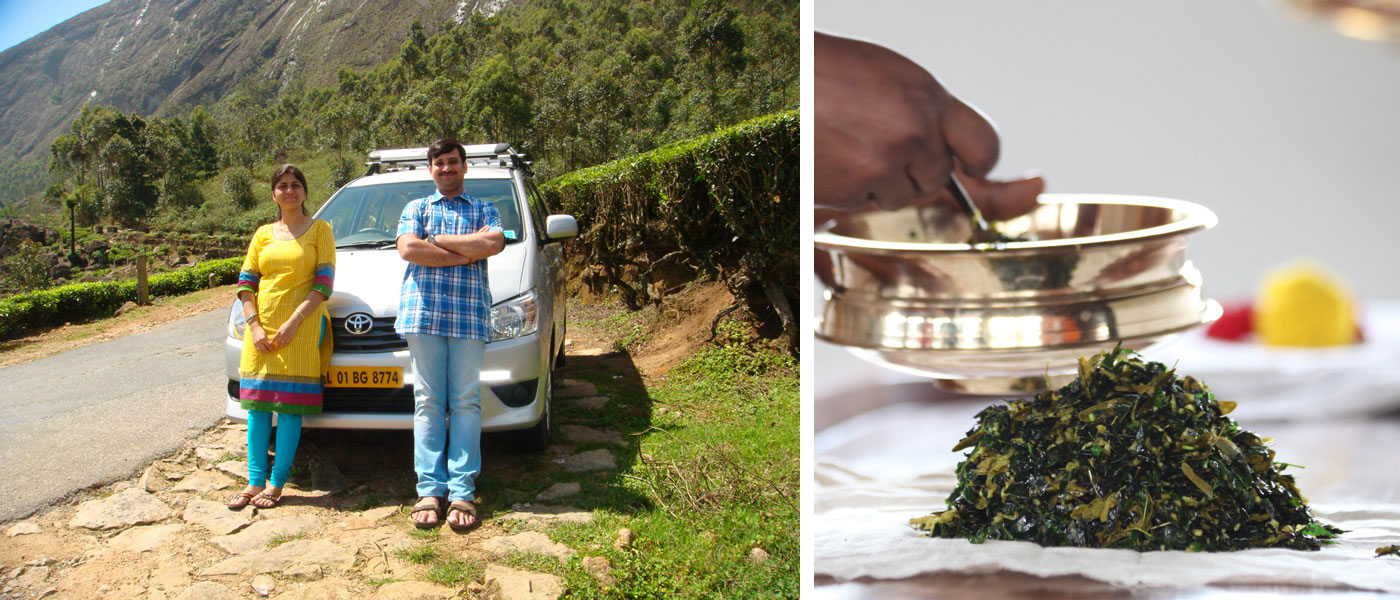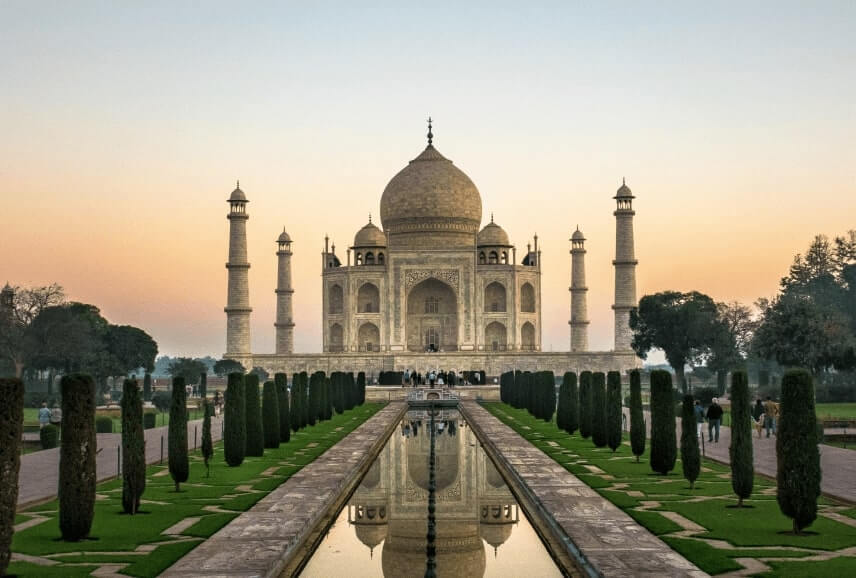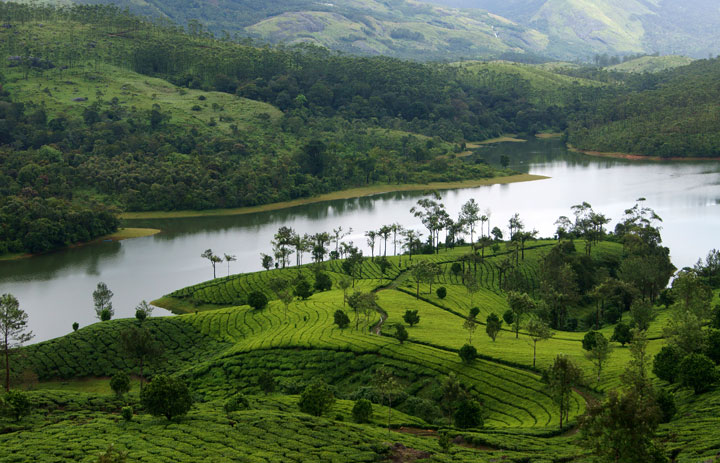Government of India Ministry of Health and Family Welfare
Guidelines for International Arrivals
(in supersession of all guidelines issued on the subject on and after 20 January 2022)
Introduction
The global and Indian growth trajectory of COVID-19 pandemic continues with regional variations. The need to monitor the continuously changing nature of virus and evolution of SARS-CoV-2 variants of concern (VOCs) thus, must still remain in focus. The extant guidelines for international arrivals in India continue being formulated taking a risk-based approach. While monitoring the nature and spread of infection in the country and across the globe, cognizance is also given to the fact that economic activities need to be taken up in an unhindered manner.
Scope
This document provides protocols to be complied by international travellers as well as those to be followed by airlines and all points of entry (airports, seaports and land border).
This Standard Operating Procedure shall be valid w.e.f. 14th February 2022 (00.01 Hrs IST) till further orders. Based on the risk assessment, this document shall be reviewed from time to time.
A.1. Planning for Travel
i. All travellers should
- a. Submit complete and factual information in self-declaration form on the online Air Suvidha portal (https://www.newdelhiairport.in/airsuvidha/apho-registration) before the scheduled travel, including last 14 days travel details.
- b. Upload a negative COVID-19 RT-PCR report* (The test should have been conducted within 72 hrs prior to undertaking the journey)
or
Certificate of completing full primary vaccination schedule of COVID-19 vaccination**. - c. Each passenger shall also submit a declaration with respect to authenticity of the report and will be liable for criminal prosecution, if found otherwise.
ii. They should also give an undertaking on the portal or otherwise to Ministry of Civil Aviation, Government of India, through concerned airlines before they are allowed to undertake the journey that they would abide by the decision of the appropriate government authority any post arrival requirement to undergo home/institutional quarantine/ self-health monitoring, as warranted.
A.2. Before Boarding
iii. Do’s and Don’ts shall be provided along with ticket to the travellers by the airlines/agencies concerned.
iv. Airlines to allow boarding by only those passengers who have filled in all the information in the Self Declaration Form on the Air Suvidha portal and uploaded the negative RT-PCR test report or Covid -19 vaccination certificate of having completed the primary vaccination schedule**.
v. At the time of boarding the flight, only asymptomatic travellers will be allowed to board after thermal screening.
vi. All passengers shall be advised to download Aarogya Setu app on their mobile devices.
A.3. During Travel
vii. In-flight announcement about COVID-19 including precautionary measures to be followed shall be made at airports and in flights and during transit.
viii. During in-flight crew shall ensure that COVID appropriate behaviour is followed at all times.
ix. If any passenger reports symptoms of COVID-19 during flight, he/she shall be isolated as per protocol.
x. Proper in-flight announcements should be made by the airlines regarding the testing requirements and people who need to undergo such testing to avoid any congestion at the arrival airports.
A.4. On arrival
xi. De-boarding should be done ensuring physical distancing.
xii. Thermal screening would be carried out in respect of all the passengers by the health officials present at the airport. The self-declaration form filled online shall be shown to the airport health staff.
xiii. The passengers found to be symptomatic during screening shall be immediately isolated and taken to medical facility as per health protocol. If tested positive, their contacts shall be identified and managed as per laid down protocol#.
xiv. The following protocol post arrival shall also be followed
- a. A sub-section (2% of the total passengers in the flight) shall undergo random postarrival testing at the airport on arrival.
- b. Such travellers in each flight shall be identified by the concerned airlines (preferably from different countries). They will submit the samples and shall be allowed to leave the airport.
- c. If such travellers are tested positive, their samples should be further sent for genomic testing at INSACOG laboratory network.
- d. They shall be treated/isolated as per laid down standard protocol.
xv. All travellers will self-monitor their health for next 14 days of arrival.
xvi. If travellers under self-health monitoring, develop signs and symptoms suggestive of COVID- 19, they will immediately self-isolate and report to their nearest health facility or call National helpline number (1075)/ State Helpline Number.
International travellers arriving at seaports/land ports
xvii. International travellers arriving through seaports/land ports will also have to undergo the same protocol as above, except that facility for online registration is not available for such passengers currently.
xviii. Such travellers shall submit the self-declaration form to the concerned authorities of Government of India at seaports/land ports on arrival.
* Children under 5 years of age are exempted from both pre- and post-arrival testing. However, if found symptomatic for COVID-19 on arrival or during the period of self-monitoring period, they shall undergo testing and treated as per laid down protocol.
** There are Countries which have agreement with India on mutual recognition of vaccination certificates of Nationally recognised or WHO recognised vaccines. Similarly, there are Countries which presently do not have such an agreement with India, but they exempt Indian citizens fully vaccinated with Nationally recognised or WHO recognised vaccines. On the basis of reciprocity, the travellers from only such Countries which provide quarantine-free entry to Indians will be allowed for relaxation under Certificate of completing full primary vaccination schedule of COVID-19 vaccination. The listing of such Countries is available on website of Ministry of Health & Family Welfare (mohfw.gov.in) and the link of the same will be available at website of Ministry of External Affairs and Air Suvidha Portal.
This is also a dynamic list and will be updated from time to time. The travellers from such countries only are considered for allowing entry based on vaccination certificate & shall upload their fully vaccinate certificate on the Air Suvidha portal.
# Contacts of the suspect case are the co-passengers seated in the same row, 3 rows in front and 3 rows behind along with identified Cabin Crew.
International tourism opened and no quarantine for travellers to India.
01/ No quarantine required for international passengers with effect from 14th feb 22.
02/ if they are fully vaccinated, then no requirement of RTPCR. Simply travel.
03/ if not vaccinated, then they must obtain RTPCR 72 hour prior to arrival.
This means people without vaccination also can travel, but need to do RTPCR test.
India welcomes foreign tourists
Pleased to advise all that E Tourist visa site is now operational and first 5,00,000 30 days single entry E tourist visa are being issued. RTPCR test 72 hrs boarding, uploading on Air Suvidha app and again RTPCR test on arrival is the present procedure. Tourists will not have to wait at the airport for the result which will be communicated to them on mobile phone.
Guidelines for tourists visiting India
Total vaccination in India
COVID-19 Vaccination as on: 16 October
29.6 Cr Fully vaccinated.
100 Cr Total doses given in India.
All workers in tourism are vaccinated.
| Tourist Places | Open |
|---|---|
| Hotels | Open |
| Restaurants | Open |
| Shopping Malls | Open |
International tourists (online Tourist visa will be available for travel from 15th Nov 2021)
Take online Tourist visa https://indianvisaonline.gov.in/evisa/tvoa.html
Medical visa available for taking Ayurveda in India.
India opening tourist visas from 15th November 2021
MHA has decided to begin granting fresh Tourist Visas for foreigners coming to India through chartered flights with effect from October 15, 2021. Foreign tourists entering into India by flights other than chartered aircraft would be able to do so only with effect from November 15, 2021 on fresh Tourist Visas. Foreign tourists can visit India from 15th Nov travelling in scheduled flights.
Is tourism open in India?
Domestic tourism in India is open and people can travel with in the states or from other states. Foreign nationals can visit India for medical and Ayurveda treatments by taking medical visa which is available online. Ayurveda hospitals/ Resorts can do online consultation and give reports which can be submitted to get medical visa. Details for availing medical visa is here https://www.theayurvilla.com/blog/medical-visa-for-ayurveda-travellers-in-india
India roll out massive vaccination drive.
India has begun one of the world’s biggest Covid-19 vaccination programmes, the first major developing country to roll out the vaccine, marking the beginning of an effort to immunise more than 1.3 billion people. The Indian health ministry has drawn up plans for 300 million people, almost the equivalent to the population of the US, to be vaccinated by August. Frontline healthcare workers, police and the army have been given priority, with those over 50 and with co-morbidity conditions to follow, all free of cost. India’s free shipments of the vaccine began with Maldives, Bhutan, Bangladesh and Nepal and will extend to others. India exported 2 million doses of Covid Vaccine to Brazil and Morocco.
The only way to prevent contracting any disease, including COVID, is to develop strong immunity against it. Immunity is a series of steps your body takes to destroy a threat. Vaccination helps to reduce the rate of infection and the acquired immunity prevents spread of Covid and thus helps to get the virus vanished from the country.
The lowest mortality rate of 1.4% and highest asymptomatic figures are Indians. Study conducted in Middle east showed that 68% of the Covid infections in Bahrain and 60% in Qatar are asymptomatic and out of this 30% are Indians. The Indian food has many ingredients such as turmeric, garlic, ginger, pepper and other spices which develop natural immunity. The Indian way of living with highest vegetarians yoga, meditation and spiritual elements helped India to pass through the Corona pandemic much easily with elevated natural immunity, physical, mental and emotional balances.
According to the proposed guidelines for planning a visit to India, international tourists would need to identify a recognised tour operator and arrange for the fixed itinerary with the tour operator for the period they plan to travel. All tourists would either have to present a vaccination completion certificate or a COVID-19 negative report at least 72 hours before the scheduled travel or physically after arrival at the respective airports where such facility is available to get exemption from institutional quarantine. The proposed guidelines also advise tourists to stay informed through their tour operator or from the Ministry of Health’s website about the current COVID status in India and the existing operating procedures/advisories available on the website of the Ministry.

India’s fatality rate among world’s lowest
Of the total COVID -19 active case load,0.28 % patients are on ventilators, 1.61% patients required ICU support and 2.32% are on oxygen support.
India has one of the lowest case fatality rate globally, which is also steadily decreasing. India’s case fatality rate is also progressively reducing and currently stands at 2.18%, one of the lowest globally and the overall recovery rate for india was 64.54%. the highest rate of recovery is being recorded by delhi at 89.08%, followed by Haryana [79.82%]. Karnataka has the lowest number of recovery rate of 39.36%.
Please read the 21 tips for planning your first trip to india
Is it possible to travel in India during Covid 19
Airlines in India are back into action, as on May 25, the Indian Government allowed domestic airlines to resume operations across the country. As regarding international travel, we need to wait for some time as it is yet to get the green flag.
Now, the decision to travel during the pandemic is entirely your choice, along with your responsibility to ensure your personal safety. Some states have quarantine rules in place, which you also need to check before planning your travel. Further, you need to check if the state you are travelling to, is allowing flights from your state or not.
As India entered the Unlock 2.0 phase, more and more people are gearing up to embrace the new normal, and hence, venturing out to travel.
Standard operating procedure for tourism in India
The global outbreak of COVID-19 has brought the world to a standstill. This is an unprecedented global health emergency with tremendous impact on societies and livelihoods. Travel and Tourism is among the sectors most affected by this crisis but at the same time, Tourism can also be an integral part of the global recovery efforts.
In the COVID 19 aftermath, countries will need to realise a new reality of the tourism and travel industry and make all efforts to shape the sector accordingly. Tourism Businesses will require a re-thinking of how they will operate in terms of hygiene, health and safety to ensure safety of their clients and staff.
The Ministry of Tourism proposes to recommend Protocols covering all service providers and their related activities to tourism and hospitality sectors, to ensure a safe and prepared approach for a post-COVID 19 revival.
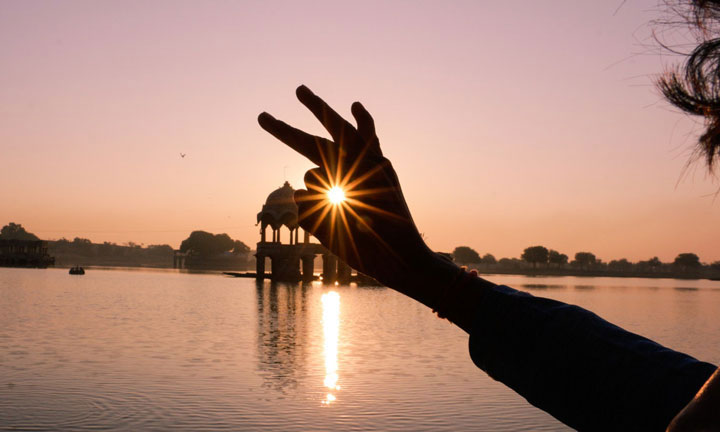
The protocols/guidelines are applicable to service providers engaged in management of both international and domestic tourists. These include, the following in the tourism supply chain:
• Travel Agents
• Tour Operators (Inbound, Domestic & Adventure)
• Tourist Transport Operators
• Tourist Facilitators / Guides
They have been prepared with primary focus on identifying and mitigating risks for the service provider and for ensuring necessary safety and hygiene practices in interaction with travelers. Minimizing all possible touch points by use of digital technology has been one of the guiding principles for the guidelines. This would not only help in reducing the risk but also make traceability of the guest easier in case a situation in future warrants so.
The protocols would include the requirements that each sub-sector or tourist activity would need to comply with in terms of health and hygiene. The same could be adapted by States/UTs based on their tourism products and service capacity.
Corona virus update – Kerala, India – Apr 27th 2020
India – worlds largest democracy has succeeded in containing the Covid with a very low mortality rate.
The below figures shows India has the lowest mortality rate from COVID 19 virus.
| Country | Confirmed deaths (absolute) | Population (in millions) | Deaths per million |
|---|---|---|---|
| Belgium | 6,917 | 11.42 | 605.58 |
| spain | 22,902 | 46.72 | 490.16 |
| Italy | 26,384 | 60.43 | 436.6 |
| France | 22,614 | 66.99 | 337.59 |
| United Kingdom | 20,319 | 66.49 | 305.6 |
| Netherlands | 4,409 | 17.23 | 255.88 |
| Ireland | 1,063 | 4.85 | 219.02 |
| Sweden | 2,192 | 10.18 | 215.26 |
| Switzerland | 1,599 | 8.52 | 187.75 |
| United States | 53,846 | 327.17 | 164.58 |
| Portugal | 880 | 10.28 | 85.59 |
| India | 825 | 1,352.62 | 0.61 👈 |
Survey time period: April 26, 2020.
India’s 21-day lockdown may have successfully suppressed the epidemic. Social distancing is one of the best ways to slow the epidemic.
India may have protective characteristics against Covid-19. Researchers have proposed that the low share of elderly in the population, the high temperatures and humidity in India, widespread BCG vaccination for tuberculosis, or resistance to malaria have helped India escape the brunt of the pandemic.
The spicy Indian foods contain ingredients such as turmeric, garlic and ginger which boost the immunity naturally. Kerala state in India where the alternative medicine Ayurveda originated which has treatments based on extracts from herbal medicinal plants and oils.
India is home of yoga and many are practising pranyama (breathing excercise) which expands the capacity of lungs and prevent from Pneumonia.
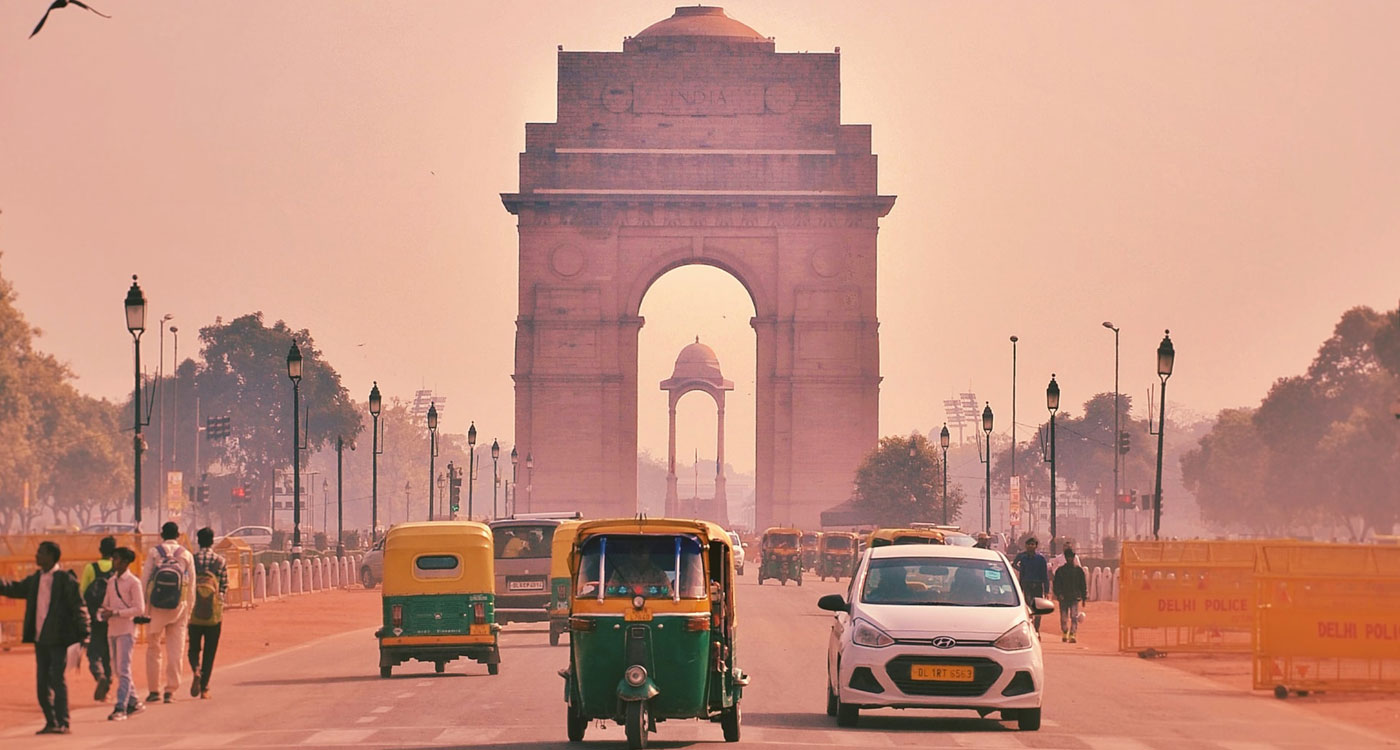
Why India will become a sought after destination post corona?
1) The future travel trends after Corona infections would be leisure + healthcare tour and India being the home of Ayurveda and Yoga would become the wellness hub of world.
2) People prefer to travel independently with out using public transports while going for vacation. India still has cheap and affordable private car tours with english speaking chauffeurs and many will prefer to have all inclusive private car tours to protect from Covid.
3) There are 30 million out bound travellers from India every year and this year many prefer to have domestic tours with India. States like Goa, Kerala will get a good chunk of domestic travel.
4) The Indian big fat weddings limited to 10 people for the ceremony and the part of the big amounts saved would be spend for Luxury honeymoon in Indian destinations.
